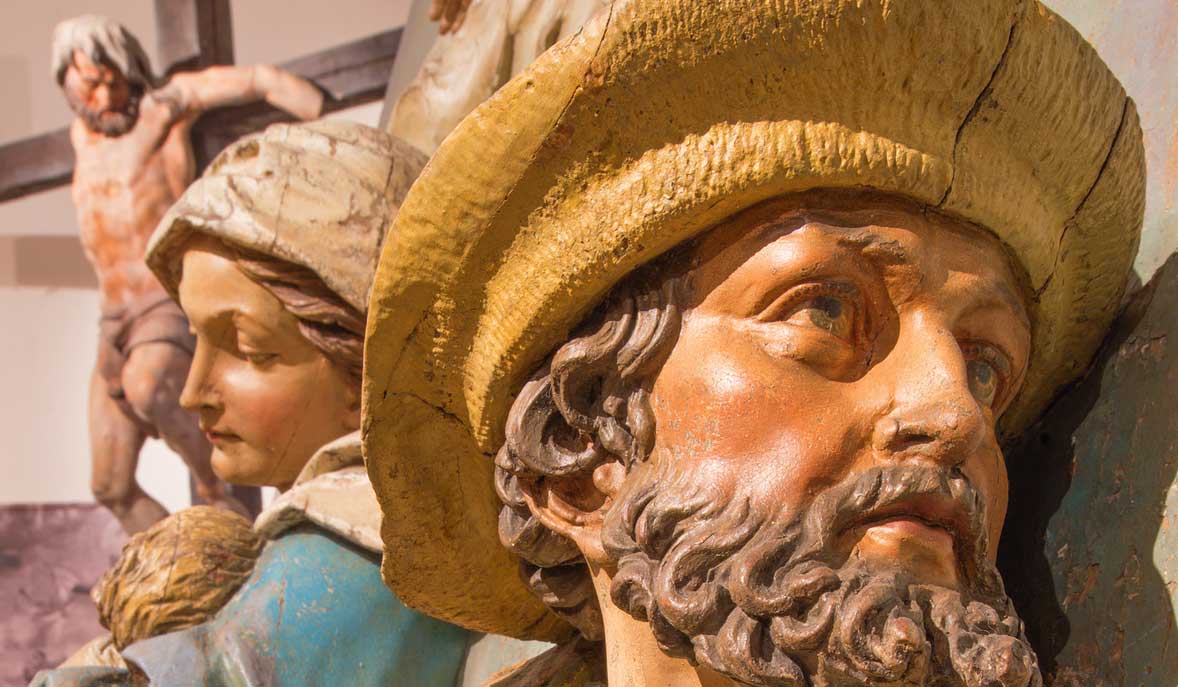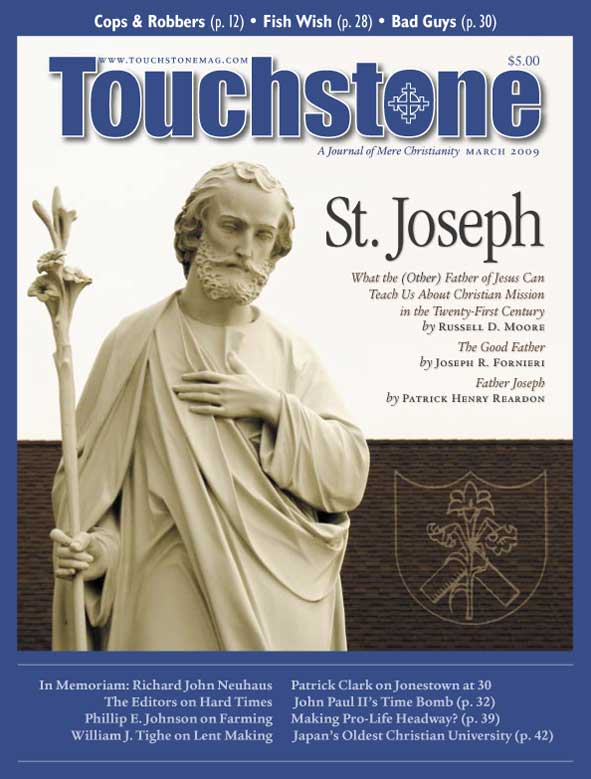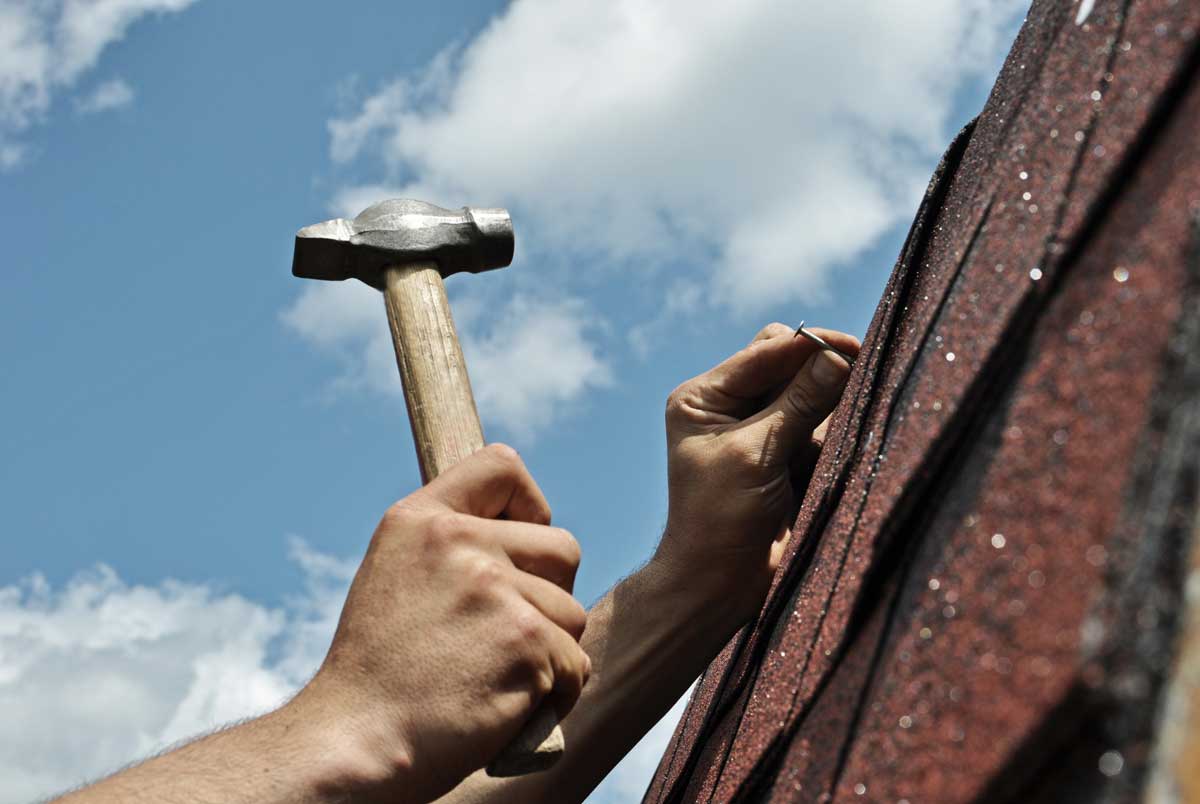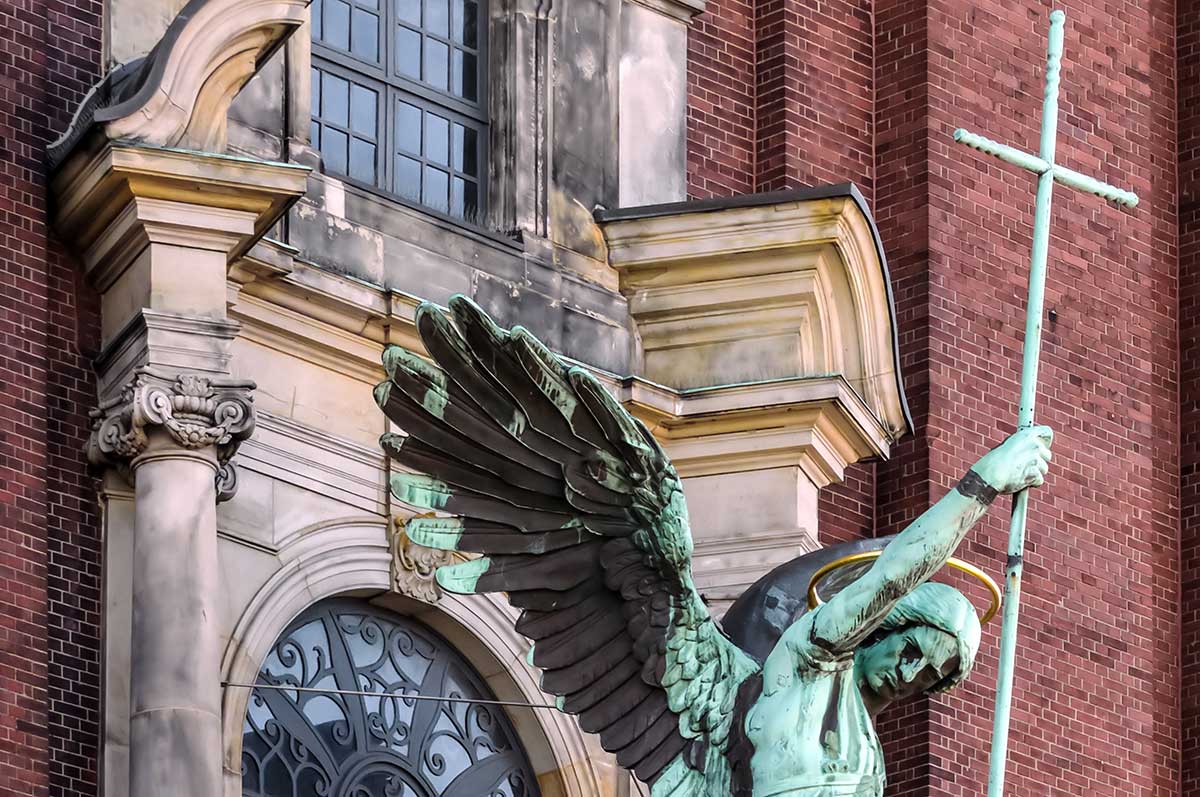View
The Good Father
Joseph R. Fornieri on the Manly Character of St. Joseph
I used to think that St. Patrick’s Day, March 17th, was a special holiday for the Irish kids, while St. Joseph’s Day, March 19th, was reserved for us, the Italian kids. I never fully understood why everybody at my public school (even the non-Catholics) wore green on St. Patrick’s Day, while nothing was done in honor of St. Joseph.
On his feast day, bakeries in my hometown of Rochester, New York, would open their doors to our families who prepared a braided Easter bread, which was then distributed to the poor. Our St. Joseph bread vied with the Irish hot cross buns for Lenten cuisine supremacy. My German pals had their own highly competitive version of Easter Bread— Hefekuchen. Maria Halter’s was heavenly (I can still taste it).
Some parishes provided St. Joseph’s Day tables, which were laden with food, and a statue of St. Joseph surrounded by oranges. We feasted with family and friends. Of course, if your name was “Joseph”—and the odds of this in an Italian-American family were quite high—the day would have special significance for you as a namesake. It was a teaching moment: The extended family would remind you of your responsibility to live up to the standard set by your patron.
St. Joseph has always occupied an important place in the piety of Sicilian-Americans. While I was raised in this tradition, my appreciation of Joseph has deepened over the years. Now the father of two daughters and a husband of seventeen years, I increasingly return to those Old World roots and to Joseph’s example for strength as I confront the unique challenges and responsibilities of middle adult life. I share this essay with those who face similar challenges, especially in these difficult times.
True Manliness
The contemporary decline of manliness in our society parallels the decline of the family. Our reverence for St. Joseph once served as an important reminder of the connection between true manliness and fatherhood and family, a connection that today is increasingly broken. The feminist crusade to replace masculinity with gender neutrality has stripped boys of positive male role models that would inform their moral imaginations and inspire them to fulfill honorably their responsibilities as husbands, fathers, and patriotic citizens.
At one time the absence of a father was viewed as tragic; today it is accepted as a legitimate alternative way to raise children. In some circles, fatherlessness is even planned and welcomed. Our commercial and popular culture ridicules fathers as bloated buffoons, epitomized by the cartoon character Homer Simpson. The “father figure” of our time is no longer an authoritative sage, as he may have been in times gone by. Consider the following versions of masculinity sold to us by today’s mass culture: the haughty CEO, the emasculated wimp, the charming gangster, the prima donna athlete, the psychopathic warrior, the postmodern cynic, and the playboy for whom sex has become sport. Each path descends to the lowest common denominator of vulgarity.
In Manliness, Harvey C. Mansfield decries the gender neutrality of contemporary culture. Unfortunately, this otherwise excellent book fails to mention any Christian models of manliness and the crucial role of Christianity in transforming pagan notions of manliness. It is within this context that I see a particular urgency to reaffirm St. Joseph as a positive masculine role model for our times.
Let us begin by first considering what St. Joseph represented for my ancestors and for generations of Catholics from all ethnic groups. What qualities did he possess that make him worthy of our admiration? We are introduced to Joseph in Matthew’s Gospel, where he is immediately described as “a righteous man.” Significantly, righteousness, the quality of standing in proper relation to God and having the disposition to do his will, is the first, defining virtue of this manly man.
Joseph’s Christian manliness appears through his roles and responsibilities as a righteous man, a foster father, a husband, a provider, and a guardian. In each of these ordinary roles, he showed that honor and humility may be combined in the performance of extraordinary deeds. It is ironic that we take these roles for granted yet fail so miserably at them today, as high rates of abuse, divorce, and illegitimacy testify.
Unlike Jesus, who was called to a different vocation, Joseph was both a husband and a parent. The fact that he chose Mary as his wife testifies to his spiritual discernment. He was drawn to the woman who would have a uniquely special role in salvation history. The measure of a man’s manliness cannot be divorced from the qualities and characteristics he selects in a spouse. It speaks volumes about the character—or lack thereof—of a man who chooses “a trophy wife” or an obsequious partner to bully. Clearly, such was not the case with Joseph.
Tests of Character
The strength of Joseph’s manly character was tested when he discovered that his betrothed was pregnant even though he had not yet “known her.” This was a situation that, to put it mildly, would have bruised anyone’s manly honor. As yet, the angel had not reassured Joseph that this was part of God’s plan. A lesser man, seeking only to defend his personal honor, might have demanded that Mary be stoned as an adulteress. Consider that “honor killings” still occur in the Middle East. Instead, the Gospel tells us that Joseph was “unwilling to expose her to shame” and that “he decided to divorce her quietly.” Putting aside his own bruised ego, Joseph acted charitably and without malice. He sought to handle the matter discreetly without further harm or humiliation to Mary.
Joseph’s restraint in this regard provides an important lesson in learning how to manage one’s impulsive rage and to control one’s temper. This is a particularly important lesson for those of us who were inclined in our youth to be “hot-blooded.” A spiritually mature man, like Joseph, is not governed by the tempests of wounded masculine pride. Patience and circumspection may lead us to discover that our initial judgment was wrong. This means standing back from the heat of the moment to listen to God, to our spouse, and to our children, just as Joseph listened to the angel and Mary, rather than succumbing to impulse and “snap judgments.”
Joseph further embodies Christian manliness in his role as protector of the Holy Family. Tradition refers to him as custos Domini (guardian of the Lord). One can point to Joseph as the greatest advocate of adoption, which is often ridiculed today and asserted to be a cause of dysfunctional families. Joseph testifies to the nobility of a self-giving love that transcends blood and genetics.
After accepting Mary as his wife, he seemingly failed in his role of provider to find a suitable place for Mary to give birth. To his frustration, humiliation, and disappointment, the inn was closed to them. It is highly unlikely that a wealthier, more powerful man would have been turned away with the same contempt and disregard. The closed inn remains a poignant symbol not only of marginalization and disappointment, but also of perseverance. Ultimately, Joseph found a place for the savior to be born, though it was a lowly stable.
Joseph was soon confronted with another major challenge to the security of his family. He was informed that he must take his family and flee to Egypt since Herod was seeking to destroy the child. Now he was a refugee. Yet this duty, too, he performed in obedience and trust.
Work & Faith
By trade, Joseph was a carpenter—a simple artisan, not an intellectual, not a scribe, not a prophet, not a priest. The passing of this craft to Jesus Christ affirmed for Christians the dignity of work and of manual labor. Pagan philosophy deprecated mechanical labor as suitable only for vulgar types and unbecoming for “gentlemen.” From the example of Joseph and his young apprentice in the carpentry shop, unschooled craftsmen and laborers could take heart that their vocations were honorable, and that they were following in the footsteps of their Lord and his foster father.
Perhaps it is not coincidental, then, that so many Italian-American men pursued, and still pursue, careers as builders and masons? In the Sicilian community, St. Joseph stood as “quality control” for those who pursued crafts. Shoddy workmanship was not to be tolerated. Being manly also meant that there was no shame in “getting one’s hands dirty.” The “dignity of work” has always been an axiom amongst Sicilians, which may, in part, be attributed to their veneration of Joseph.
Joseph was responsible for passing on to his adopted son not only his trade as carpenter, but also his Jewish faith. His example challenges us fathers today to embrace our crucial responsibility in teaching and raising our children in the Christian faith. A sustained effort is required in view of the “busyness” of everyday life and the hostility of secular culture to Christian values.
Measured by today’s standards of manliness, Joseph may seem like a failure. His fiancée was pregnant with someone else’s child, he was unable to provide a suitable place for her to give birth and he was forced to take refuge in Egypt rather than fighting Herod’s minions. Indeed, Joseph’s humility and “ordinariness” stand in contrast to the commanding manliness of today’s wealthy CEO or to the haughty, intellectual snobbery of a university professor.
Yet Joseph embraced his responsibilities with manly fortitude, humility, righteousness, charity, and self-sacrifice. Despite great adversity and humiliation, which may have broken a man of less strength of character, he persevered, trusting that God would strengthen him in his efforts to provide for the Holy Family. He consistently put aside his own ego in the service of God and family. Those of us who are husbands and fathers can look to Joseph’s example when we experience our own frustrations concerning reputation, career, and material well-being. Images of St. Joseph frequently portray him holding a carpenter’s rule, which to me, symbolizes not only his craft but also his ability to rule and measure spiritual things.
Joseph Needed Today
For years, the entertainment industry has vividly portrayed the dark and ugly side of Italian-American manliness by catering to our never-ending fascination with the Mafia. I concede that Italian-Americans are themselves complicit in this. Evil is alluring. Perhaps we are fascinated by these figures because they provide a window, albeit a distorted one, into our culture, or because they reflect the dark side of ourselves.
I fear, however, that The Godfather and The Sopranos have become cultural myths for too many in the Italian-American community. The Sicilian-American soul was once formed by Joseph the Carpenter as its role model. Do we now see ourselves in the likes of Michael Corleone?
Perhaps a future poet will be able to capture St. Joseph’s extraordinary ordinariness in the context of our time. As assimilation to modern culture has taken place, devotion to St. Joseph among Sicilians, and Catholics in general, seems to have waned. With some exceptions, his feast day has become just another day. His statue no longer appears in my church. Mary often stands alone, apart from her husband and family.
In forgetting Joseph, we deprive ourselves of a manly Christian role model sorely needed today. If our loss of reverence for St. Joseph is related to the decline of manliness and fatherhood in our culture, perhaps a renewal of that reverence will helps us discern and cultivate what is truly best about ourselves as fathers and husbands.
Joseph R. Fornieri is an Associate Professor of Political Science at the Rochester Institute of Technology in Rochester, New York, and the author of Abraham Lincoln’s Political Faith (Northern Illinois University Press) and other writings on Lincoln. He is a Roman Catholic.
subscription options
Order
Print/Online Subscription

Get six issues (one year) of Touchstone PLUS full online access including pdf downloads for only $39.95. That's only $3.34 per month!
Order
Online Only
Subscription

Get a one-year full-access subscription to the Touchstone online archives for only $19.95. That's only $1.66 per month!
bulk subscriptions
Order Touchstone subscriptions in bulk and save $10 per sub! Each subscription includes 6 issues of Touchstone plus full online access to touchstonemag.com—including archives, videos, and pdf downloads of recent issues for only $29.95 each! Great for churches or study groups.
Transactions will be processed on a secure server.
more on fatherhood from the online archives
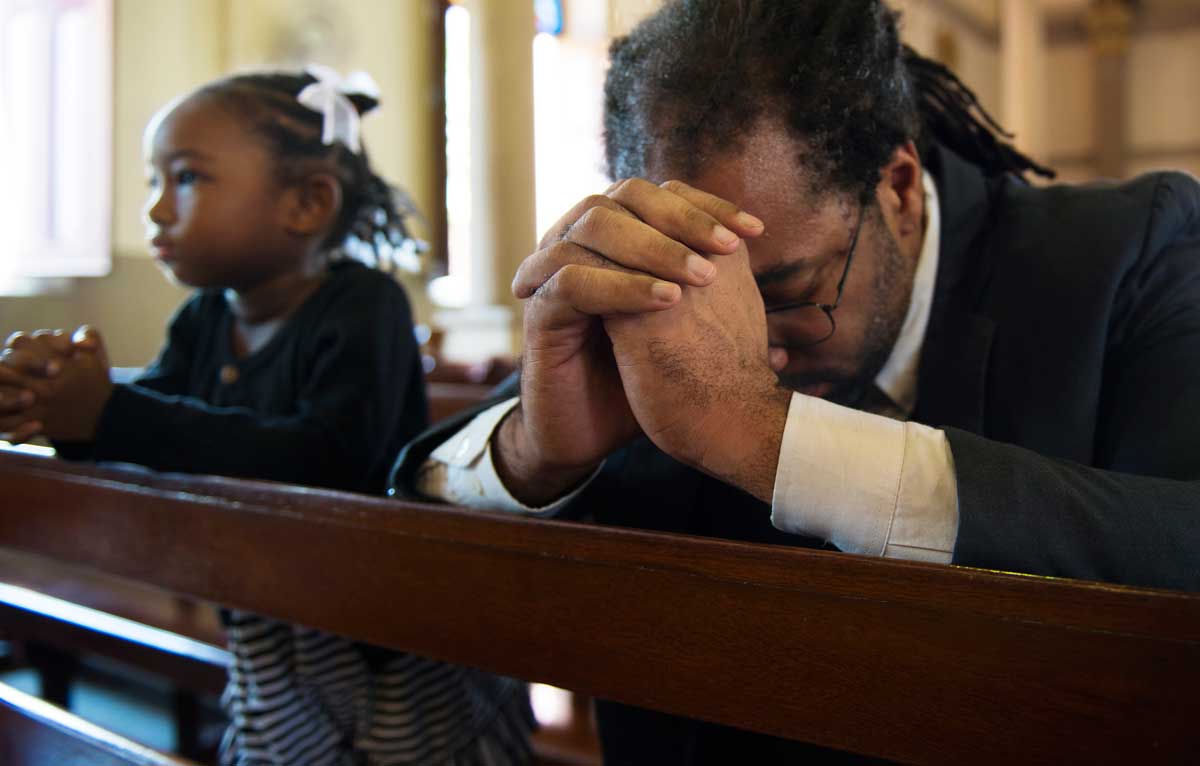
14.1—January/February 2001
The Christian Heart of Fatherhood
The Place of Marriage, Authority & Service in the Recovery of Fatherhood by John M. Haas
more from the online archives

33.2—March/April 2020
Christian Pro-Family Governments?
Old & New Lessons from Europe by Allan C. Carlson
calling all readers
Please Donate
"There are magazines worth reading but few worth saving . . . Touchstone is just such a magazine."
—Alice von Hildebrand
"Here we do not concede one square millimeter of territory to falsehood, folly, contemporary sentimentality, or fashion. We speak the truth, and let God be our judge. . . . Touchstone is the one committedly Christian conservative journal."
—Anthony Esolen, Touchstone senior editor





